The Greens and Labor’s climate policy: the war is far from over
The battle within the left of politics was bequeathed by the 2022 election, seeding a struggle between Labor and the Greens over how far and how fast to go.
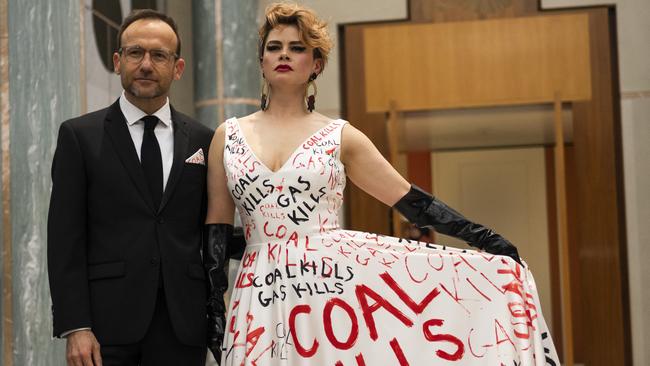
This choice has arrived as a conflict between the Albanese government and the Greens, who need each other but are locked into a contest of wills, politics and ideology.
Australia’s climate wars are not over. Anybody thinking that doesn’t grasp the drivers of our politics. Indeed, the battle now occurs on two fronts simultaneously. In his most important decision so far as Opposition Leader, Peter Dutton is voting against Labor’s Safeguard legislation – the government’s emissions reduction policy – convinced that Labor’s policy will flounder with ongoing high power prices and risks to reliability in the power system as renewables phase in.
The conflict between Labor and the Coalition over climate targets and mechanisms is entrenched and will run until the next election.
The Coalition’s opposition has empowered the Greens as the balance-of-power party in the Senate. This week, Greens leader Adam Bandt pushed Labor to amend its defining emissions-reduction policy by seeking a blanket ban on “opening new coal and gas projects” – a stance impossible for the Albanese government to accept yet the enshrined policy demand of the Greens.
This conflict within the left of politics was bequeathed by the 2022 election that brought not just a change of government but seeded a struggle between Labor and the Greens over how far and how fast to push climate policy. This struggle is now heading into a showdown with enormous implications for Australia’s resources sector, our role as an energy supplier to Asia, and for the politics of the left during the rest of this term.
Resources Minister Madeleine King told Inquirer the Greens position for blanket bans was “impossible and ridiculous” and would have vast consequences for Australia’s role as an energy supplier to Asia. Environment Minister Tanya Plibersek and Bandt taunted each other, with Plibersek, holding the inner seat of Sydney, warning the Greens against repeating their blunder of 2009 saying their voters would be “shocked” to see the party aligned with the Coalition, yet again, this time to sink “a credible pathway to net zero”.
Bandt delivered a polemical pitch, saying: “We can’t keep opening up new coal and gas mines. I think that’s an untenable position for the government to take. You can’t put the fire out while pouring petrol on it. Coal and gas are driving the climate crisis but Labor wants more.”
He said MPs like Plibersek would have to explain to the people of her Sydney seat why Labor wanted new fossil fuel projects. Bandt said at least seven new gas projects would proceed under Labor’s Safeguard Mechanism, and invoked the 2022 election to argue it was the groups demanding stronger climate action than Labor that got the swing to them.
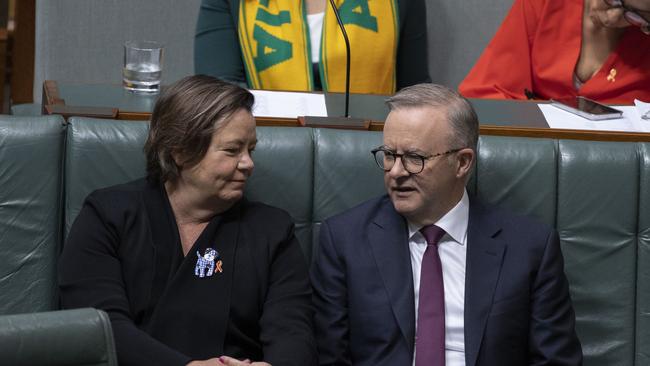
Bandt is the new Tony Abbott on climate, just taking the opposite stance. This is classic climate action populism: demanding a simple, clear-cut gesture, devoid of any assessment or modelling of the economic, pricing and energy consequences. The public is expected to shut its eyes and offer a blank cheque to politicians insisting on an extremist position. It is an irresponsible leap in the dark – yet many will support it, and that is Albanese’s problem.
In this showdown there are two realities at play. First, Labor cannot afford to buckle. Surrender to the Greens could constitute a political death warrant for the Albanese government, exposing it as weak and an easy touch for the activists of the left. Second, it is untenable for the Greens to actually veto Labor’s legislation, declaring again their willingness to sabotage a Labor scheme, this time to deliver its 43 per cent emissions reduction by 2030.
Such action would constitute another epic betrayal by the parliament.
Bandt said he was making an “offer”, not issuing an “ultimatum”. That’s a vital distinction. It implies he knows the Greens cannot repeat their mistake of 2009 when, putting the so-called perfect before the good, they voted with the Abbott-led Coalition and destroyed Kevin Rudd’s Carbon Pollution Reduction Scheme. The upshot, as Plibersek said this week, was more emissions for longer.
Asked about the Greens position, King told Inquirer: “I think this shows an ignorance of the needs of the economy and of our region. Blanket things are all well and good to say when you have no responsibility. That’s what the Greens can say and do say. They are not going to govern. They don’t have to make sure the country’s governed well and that people have the energy they need. We all want to get to the same place but they’re taking an irresponsible and unrealistic stand in this.
“The first consequence would be a decline in our export capacity and export earnings that damage the economy. Any flow-on from that affects jobs. This is such an important export industry it would, in fact, deprive the region of its energy security. Other countries have chosen their pathway to net zero emissions, Japan in particular, South Korea and others. They are more active in supporting gas as their pathway to net zero by 2050 and closing off that opportunity for them would be a consequence of restraining gas production in this country.
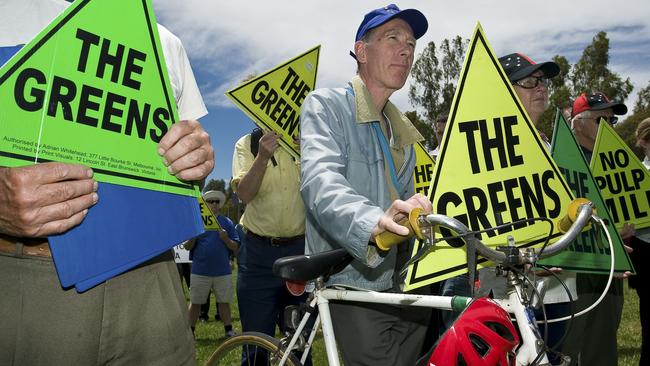
“Gas will continue to play a role for some time as part of the transition to renewables. Importantly, it will be required in manufacturing. We also know critical minerals and rare earth elements will be needed for green technology and processing of those critical minerals and rare earths will have to be done by gas. It’s absolutely essential. It’s why every country is knocking on our door wanting to be part of Australia’s new resources industry.
“Talk of blanket bans is unhelpful. I think it misleads some of the public. Anyone close to the industry – and in my home state (Western Australia) everyone’s got some link into the gas industry through family or friends – they want to get on with their lives, have the reliability of energy supplies and want the government to act on emissions. To have blanket bans is impossible and ridiculous to carry through.”
King says Australia cannot get to net zero without gas as a transition fuel. She says Australia needs gas in the short, medium and long term. But the public’s mood, with our urban centres far separated from out-of-sight resource projects, is growing hostile to fossil fuels, and even mining as such. The sector is losing the battle for the public mind.
There is almost no awareness in suburban centres of the southeast of how much the resources sector helps to finance the nation’s social agenda. The culture of progressive politics is hostile to the resources sector generally, not just fossil fuels. This will become a critical national challenge. This week, Treasury secretary Steven Kennedy felt obligated to tell a Senate estimates hearing the obvious point that “gas is a very important transition fuel for the government’s net-zero commitments”.
Even if Labor gets its legislation through the parliament, there will be no Labor/Green concord – only a deeper conflict given the Greens election policy was for a 75 per cent emissions reduction by 2030 and net zero at 2035, a guaranteed convulsion of the economy. The differences between Labor and the Greens on climate are huge, even though they are heading in the same direction. The Greens believe the politics of climate change puts them in the ascendancy. They think the 2022 election, when young people, women and professionals voted for strong climate action, is the wave of the future. They calculate their stance will further erode the ALP vote on the left – and they may be correct.
The teals have created a mood for voter experimentation and post-material utopianism on an unpredictable scale. Even if Bandt loses this showdown, he would say to his supporters the Greens intend to hold Labor to account for its hypocrisy and not killing off all new fossil fuels projects.
Labor’s problem is trying to explain its stance short of the absolutes that activists demand. Labor has taken a forward-learning stand on emissions reduction while trying to deliver a feasible pathway, albeit with significant economic and political risks.
Buckling to the Greens would discredit its policy conviction, undermine investment in the gas sector and damage Australia’s standing in key Asian capitals.
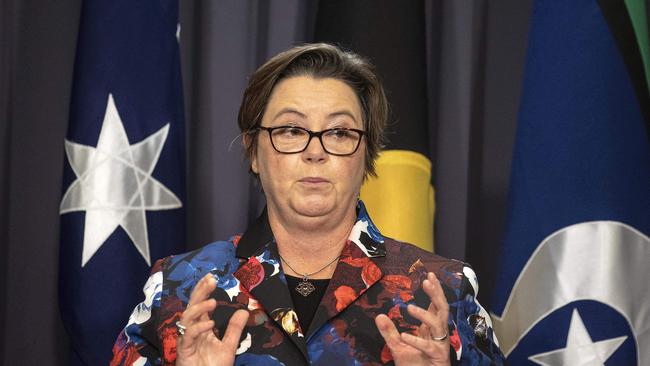
Most of the corporate sector is with Labor. Chief executive of the national employer association, the Ai Group, Innes Willox, issued a striking statement, saying: “With the Greens and the Coalition potentially scuttling the federal government’s Safeguard Mechanism, we are watching history repeat. If that happens, the cost would be more climate wars and less climate action.
“Industry has supported the mechanism in part because, given its history, we thought it was a rational approach that would gain broad support. Instead, energy and climate policy is again being used as a political football, much to the bemusement of those who do the actual investing in and development of energy sources and their consumers.
“The flat out blocking of any new coal or gas developments does not looks sensible or likely.”
Willox identified the crunch issue. The current projected decline in gas field production is running faster than the expected decline in local gas demand. In short, Australia faces a gas shortage down the track, the point hammered by the Coalition.
But Willox was scathing of the Coalition as well as the Greens for opposing Labor’s mechanism. He warned of another round of “political extremism” that could undermine the nation’s energy transition. Dutton’s answer is already on the public record: he won’t support a policy he believes cannot deliver an effective transition without imposing unacceptable risks on price and reliability.
Under Labor’s policy outlined by Climate Change and Energy Minister Chris Bowen, each of the biggest 215 polluting entities would need to reduce emissions by nearly 5 per cent annually, with provision for offsets via a carbon credits scheme. If the legislation fails to pass parliament, Bowen can implement much but not all of the policy via regulation. He calls the policy ambitious, says he will negotiate in good faith and believes it will pass.
Labor is already in serious difficulty with the gas sector given its late 2022 intervention to impose pricing caps. King told Inquirer she believed the industry would continue to invest. She pointed to the fact that the price cap was temporary and the price was well above any profit margin.
The government’s 2022 report on Resources and Energy Major Projects says more than $30bn has been committed to oil and gas/LNG projects since its last report. Growth in oil and gas prices has boosted a number of very large gas projects, notably Scarborough, the Pluto expansion and Crux LNG, all located in WA. A total of 11 oil and gas projects, with a combined estimated value of $18bn-$20bn, are at the publicly announced stage.


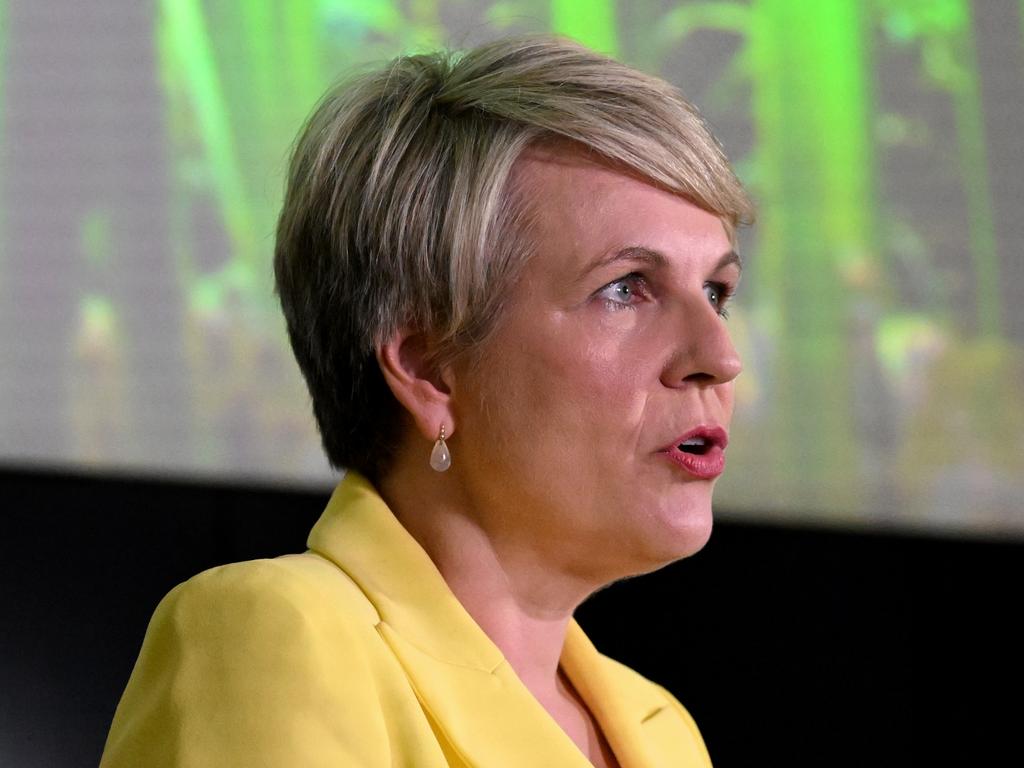
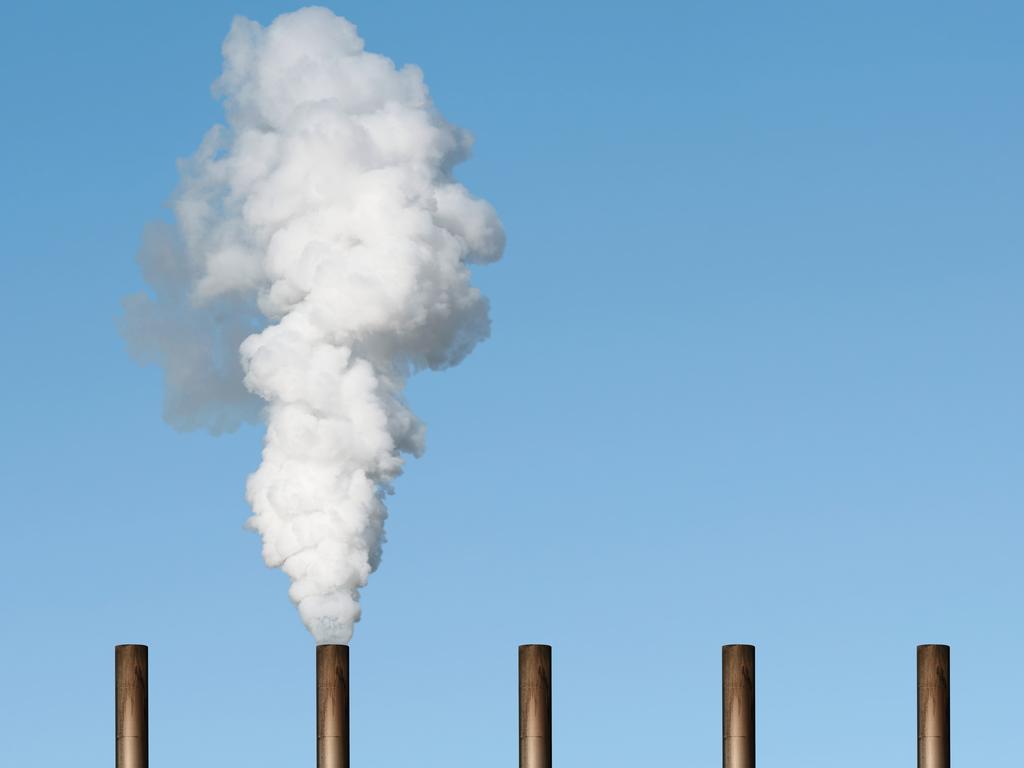
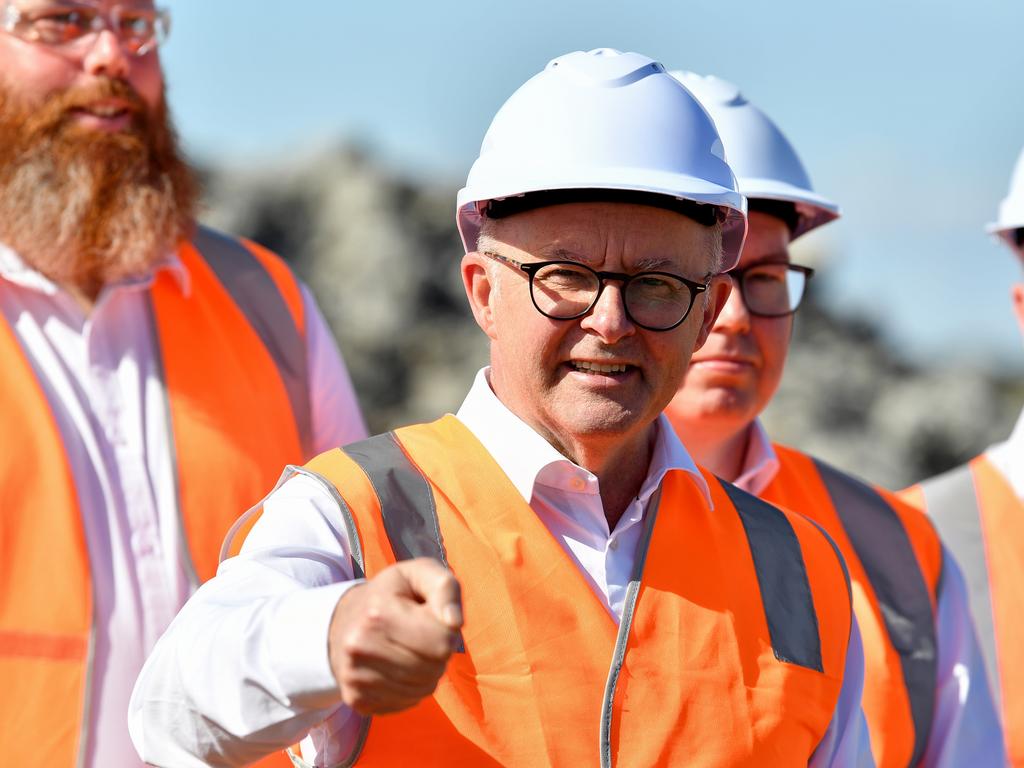

Australians need to choose whether they see climate change as a governing issue that means compromise or as a campaigning issue that means moral absolutes.